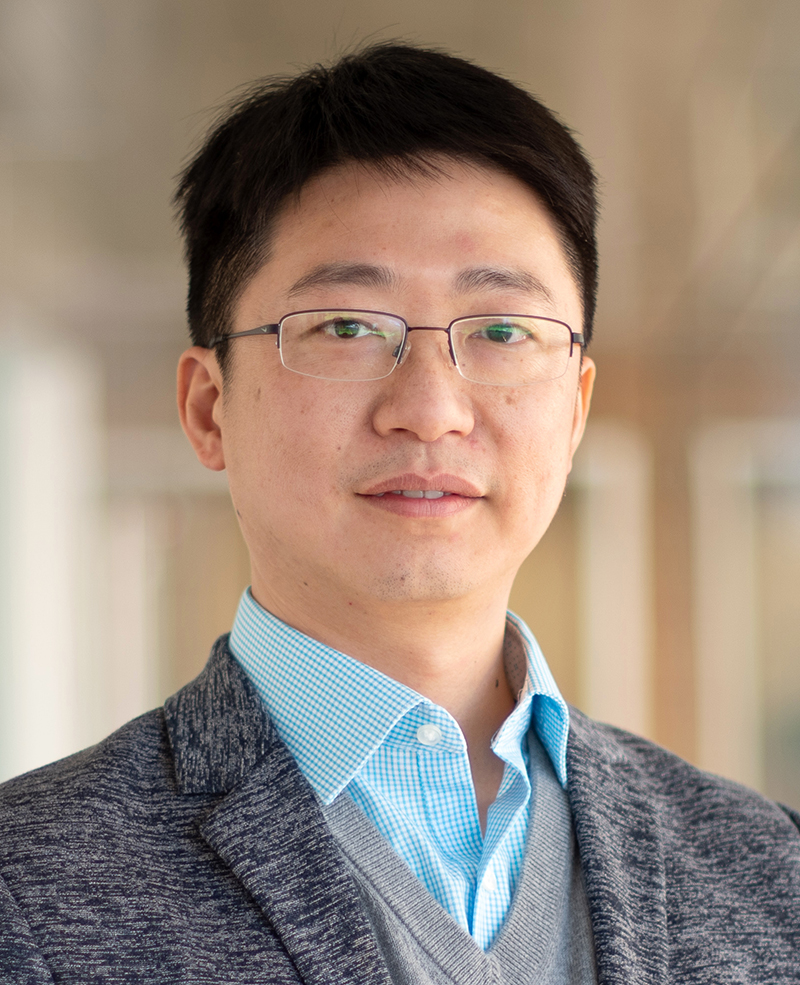Lei Ying named IEEE Fellow for fundamental research in cloud computing systems and wireless networks

Prof. Lei Ying has been elevated to IEEE Fellow, class of 2022, “For contributions to resource allocation in cloud computing systems and wireless networks.”
Ying has made fundamental contributions to the modeling, design, and analysis of algorithms for big-data systems. His research is focused on the interplay of complex stochastic systems and big data, including private data marketplaces, large-scale communication and computing systems for big-data processing, large-scale graph mining, and reinforcement learning. Applications include safe and efficient reinforcement learning for AI applications; combating fake news in social networks; and designing private data marketplaces for big-data analytics.

Ying developed the first mathematical model of VM (virtual machine) packing in servers, which constitute a cloud computing system. Using this model, he designed an algorithm to allocate VMs to servers, which is able to accommodate the largest rate of arrivals of VMs to the system. To reduce the computational complexity of his proposed algorithm, he developed heuristics which perform nearly as well as the optimal solution. His work has been subsequently used to study the minimum number of servers required to handle a certain amount of VM traffic.
In addition, Ying was the first to mathematically model the data locality problem in cloud computing systems. A leader in the design of algorithms for cloud computing systems with a very large number of servers, he has made fundamental contributions to the theory of mean-field models of these systems. His work in the area of cloud computing systems led to his Best Paper Award at IEEE International Conference on Computer Communications (INFOCOM).
Ying has also made fundamental contributions to the modeling, analysis and design of resource allocation algorithms for wireless networks. Specifically, he designed algorithms to control delay performance rather than just to simply maximize throughput. His papers on resource allocation for wireless networks, one of which won a Best Student Paper Award at the International Symposium on Modeling and Optimization in Mobile, Ad hoc, and Wireless Networks (WiOpt), have more than 1,000 citations.
Ying is a core member of the NSF AI Institute for Future Edge Networks and Distributed Intelligence (AI-EDGE), where he leads the team focused on Network Operation for Distributed AI-Applications (read more).
Since arriving at Michigan, Ying developed and taught a new graduate course, Reinforcement Learning Theory, and has also taught the graduate courses Probability and Random Processes, and Communication Networks. He has graduated 12 PhD students, and worked with numerous postdoctoral researchers, master’s, and undergraduate students.
In addition to more than 150 journal and conference publications, he co-authored two books. Diffusion Source Localization in Large Networks, part of the series Synthesis Lectures on Communication Networks (2018), was co-authored by Kai Zhu. Communication Networks: An Optimization, Control and Stochastic Networks Perspective (2014), was co-authored by R. Srikant, and named a notable book in Computing Reviews’ 19th Annual Best of Computing.
Ying has received the NSF CAREER Award, and The Defense Threat Reduction Agency (DTRA) Young Investigator Award.
Ying received his PhD in Electrical and Computer Engineering from the University of Illinois at Urbana Champaign in 2007. After serving as the Northrop Grumman Assistant Professor at Iowa State University, and then as Associate and Professor at Arizona State University, he joined the University of Michigan in 2019.
 MENU
MENU 
